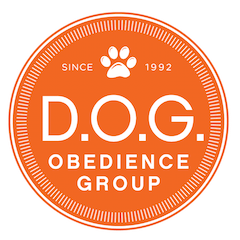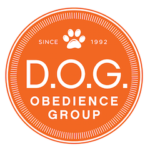
Socialization is more than just letting your dog meet new people or play at the park—it’s about helping them feel confident and secure in a variety of situations. As professional dog trainers, we understand that proper socialization is the foundation for a well-behaved, happy dog. Let’s dive into why it matters and how you can make it a positive experience for your furry friend.
Why Socialization is Crucial for Dogs
Socialization isn’t just a buzzword in the dog training world; it’s a vital part of your dog’s development. Here’s why:
For puppies, the critical socialization window is between 3 and 14 weeks of age. During this time, positive experiences have a lasting impact. However, if you have an older dog, don’t worry—socialization is still possible! It may take more time and patience, but gradual exposure can help dogs of all ages adapt.
How to Socialize Your Dog Effectively
- Introduce New Experiences Gradually
Expose your dog to different environments: parks, busy streets, pet stores, and even quiet neighborhoods. Let them observe at a distance if they’re nervous, gradually decreasing that distance as they grow more comfortable.
- Meet a Variety of People and Dogs
Dogs benefit from meeting people of different ages, appearances, and energy levels. Arrange playdates with well-behaved dogs to practice social skills. For puppies, consider enrolling in a puppy training class where controlled socialization is part of the curriculum.
- Use Positive Reinforcement
Reward your dog with treats, praise, and play when they encounter new things calmly. This helps them form positive associations with new experiences, reinforcing good behavior.
- Keep Sessions Short and Positive
Overwhelming your dog with too much at once can backfire. Short, frequent sessions are more effective than long, exhausting outings. End each session on a positive note with a treat or favorite activity.
- Expose to Different Sounds and Surfaces
Introduce your dog to a variety of sounds (traffic, vacuum cleaners, thunderstorms via recordings) and surfaces (gravel, grass, tile, sand). This reduces sensitivity to new stimuli.
Common Socialization Mistakes to Avoid
Professional dog training classes, such as puppy obedience classes or dog obedience training, provide structured environments where dogs can learn and socialize safely. Look for classes that use positive reinforcement techniques to support healthy social development.
Final Thoughts
Socialization is a lifelong process that helps your dog thrive. Whether you’re starting with a young puppy or working with an older dog, patience and consistency are key. Remember, every positive experience shapes your dog’s confidence and happiness.
Need help with socialization? Our certified dog trainers are here to guide you every step of the way. Contact us today for personalized dog training near me or to enroll in one of our puppy training classes. Let’s help your dog thrive together!

